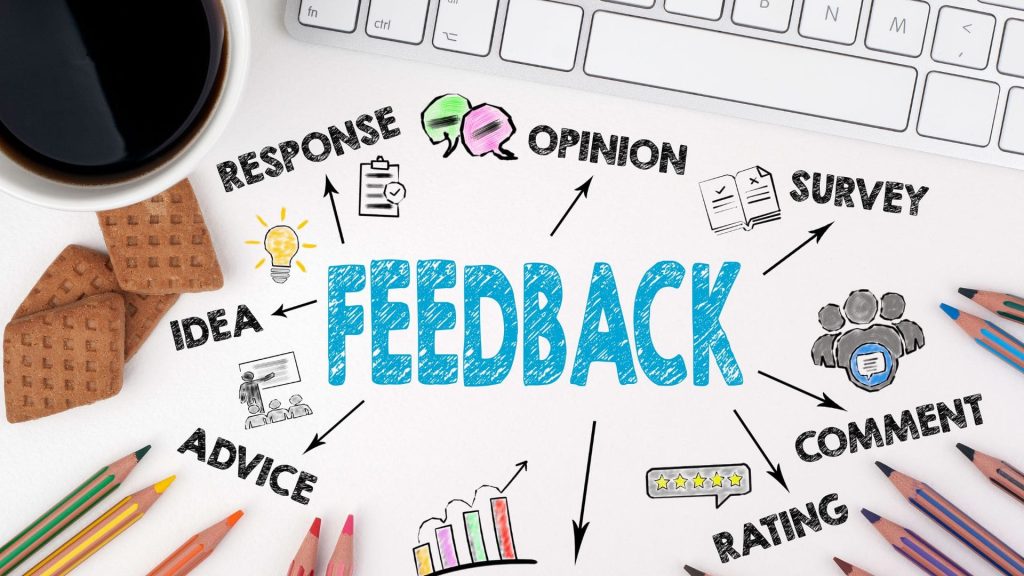
Founder Burnout: How Leading with Passion Can Backfire
48% of founders suffer from burnout. The stats are even higher with start-up founders.
Passion, untiring efforts, and continuous struggle define a founder’s journey. They trade their time, health, and mental peace to achieve the vision. In the thrill of potential success, they often neglect the less-discussed companion of their passion, which is burnout.
Can a burned-out Founder inspire a passionate team?
Is success worth it if it comes at the expense of your well-being?
In this blog, we will discuss the signs of burnout you must look into, its root causes, and prevention strategies. After all, sacrificing yourself for success is a deal no visionary should make.
What is Burnout ?
WHO defined burnout in ICD-11 as follows:
“Burn-out is a syndrome conceptualized as resulting from chronic workplace stress that has not been successfully managed. Three dimensions characterize it:
- feelings of energy depletion or exhaustion;
- increased mental distance from one’s job, feelings of negativism or cynicism related to one’s job, and
- reduced professional efficacy.
Burn-out refers specifically to phenomena in the occupational context and should not be applied to describe experiences in other areas of life.”
Burnout is not a medical condition, but a prolonged state can lead to poor mental and physical health. Mostly correlated with the individual’s reaction to chronic work-related stress, it contributes to poor relationships professionally and personally.
Warning Signs Of Burnout
Exhaustion and Fatigue: Burnout often causes a deep, pervasive sense of fatigue that doesn’t go away even after rest. This can evolve into chronic exhaustion, affecting physical stamina and energy levels. Research revealed that people suffering from continuous burnout are 42% more at risk of hypertension. High blood pressure is also associated with lasting burnout.
Cynicism: One of the key emotional symptoms of burnout is cynicism. Individuals feel emotionally distanced from their work and colleagues, exhibiting cynical attitudes and a lack of enthusiasm for tasks they once found fulfilling.
Lack of Productivity: Founders fail to perform their best despite working low hours. Burnout leads to low productivity, resulting in incomplete projects that keep on being added to the lists, further causing burnout.
Insomnia: Burnout can lead to disturbance in the sleep cycle. They may have difficulty falling asleep, staying asleep, or waking up too early. The inability to rest properly further exacerbates physical and emotional exhaustion.
Emotional Exhaustion: It is considered the key emotional symptom strongly related to other symptoms. The emotionally exhausted employee feels a lack of energy and believes all his/her emotional resources have been used up. The possible reason is the workload and over-exhausted work demands from the people around. Such people lack the energy to start another day with full productivity.
The Causes of Founder Burnout
When founders fall victim to burnout, it doesn’t just affect them – it affects their teams, customers, and stakeholders. Decisions become reactive instead of strategic, and organizational morale can take a hit.Understanding the root causes is important. Below are the most common causes of burnout in founders;
Workaholism
The hustle culture has changed the work dynamics. Working harder isn’t always working smarter.Founders often equate long hours with commitment, creating an unsustainable work-life balance. This mindset can create an environment where burnout thrives. Without regular breaks or boundaries, workaholism becomes a silent saboteur, significantly increasing the risk of burnout.
Over-identification with the Business
For many founders, their venture isn’t just a business—it’s an extension of their identity. They are mostly overly invested in their business, pouring their hearts and souls. This leads to over-identification. Tying their self-worth to their company’s success makes everything more personal than professional, causing severe consequences.The inability to detach from everyday challenges creates a cycle of overthinking and self-doubt. In case of any setback, the psychological impact is worse, leading to stress and burnout.
Unrealistic Goals
Setting ambitious targets is part of entrepreneurship, but unrealistic goals often backfire. Unrealistic goals, when unmet, can strain founders’ mental health. Common with the start-up founders, who mostly hit the projections. This cycle can perpetuate a sense of failure and contribute significantly to burnout.Successful startups grow by iterating through experiments and refining assumptions based on market feedback – a core principle of the Lean Startup methodology, while failures fuel burnout. Triggering a sense of inadequacy.
Lack of passion
Building a business without passion can drain a founder’s energy over time. Chasing a dream that is outside the true passion can also cause burnout. Some founders start their ventures following the trend or the market potential without analyzing their personal interest in the field. This lack of connection makes challenges feel heavier and wins less fulfilling. Eventually, this ends up causing burnout.
The Trap of Persistence
Persistence is often glorified in entrepreneurship, but clinging to a failing venture can do more harm than good.Founders often equate persistence with success, but this mindset can lead to burnout. The sunk cost fallacy and loss aversion make them cling to failing ventures, fearing the loss of past investments or current positions more than pursuing new opportunities. Combined with social pressure to never give up, this creates a cycle where founders ignore signs of distress and push forward, exacerbating mental and emotional strain.
The Isolation of Responsibility
Founders often shoulder every aspect of their business, from strategic decisions to daily operations. This do-it-all approach creates an unsustainable workload and isolates them from potential collaborators or support. Without delegation or a strong team, they face mounting stress and dwindling energy. Over time, the lack of shared responsibility leaves founders overwhelmed and vulnerable to burnout as they struggle to balance their growing list of tasks alone.
Strategies for Prevention and Recovery
Going on long trips or taking a month off is certainly impossible for the founders. Yet sacrificing health and mental peace can lead to costly unplanned delays. However, founders must adopt some strategies to create clear boundaries and unplug after a certain time.
Here are some strategies that can practically help the founders save from burnout without troubling the goals.
Prioritize Self-Care
Self-care isn’t just a buzzword—it’s an essential strategy for preventing burnout. Taking care of your mental and physical health should be a priority. Engage in activities that promote relaxation and well-being, whether through regular exercise, mindfulness practices, or simply taking breaks to refresh during the workday.After all, how can you steer a business to success if your well-being is on the back burner?
Reconnect with Purpose
Regularly revisit the original mission and vision that inspired the entrepreneurial journey. This connection can reignite passion without overwhelming it.
Another important aspect of this reconnection is Setting achievable targets based on current resources and capabilities. Set clear goals that lead towards the purpose, evaluate, and iterate. Celebrate small goals to revive the motivation. Adopt the growth mindset. Learn from the failures.
Delegate Responsibilities
Founders should recognize their limits and delegate tasks that drain energy but do not align with their strengths. Why shoulder every burden when skilled professionals can take over operational tasks? Delegating responsibilities not only reduces stress but also allows founders to concentrate on strategic decisions that drive growth.Hiring skilled professionals for operational roles allows founders to focus on strategic visioning. Choosing on-demand services that align with the goals and budget can help in low work stress. Running a business is hectic, but a strong team turns chaos into coordination, ensuring sustainable progress.
Seek Support
Team support is equally important. Engaging in teamwork not only eases the load but also fosters a sense of belonging and mutual understanding. Surrounding yourself with a supportive network can be a game-changer.Close family and friends offer immediate emotional grounding, while mentors and advisors provide valuable guidance. When additional help is needed, external networks of fellow entrepreneurs or mental health professionals can fill the gap. These spaces allow founders to share experiences, seek advice, and access the support necessary to navigate the highs and lows of their journey, reducing isolation and preventing burnout.
Focus on Building Resilience
Building resilience is one of the most effective ways to combat burnout in the long run. Resilience allows you to bounce back from stressful situations, maintaining a level of well-being despite the challenges you may face.Resilience can be developed by cultivating a growth mindset—understanding that challenges and failures are part of the learning process. Reframing stress as an opportunity to learn and grow can significantly change how you experience work pressures.
More Articles to Read
Struggle and challenges are inevitable for founders, and so is burnout fueled by their passion. The journey is incredibly demanding. But burnout doesn’t have to be an inevitable outcome. It is important to understand the warning signs.
You cannot eliminate all the factors that create burnout, yet it is important to understand and acknowledge the causes. Managing and adopting the prevention strategies that can support the founder’s journey towards better growth – without putting mental health at stake.
In the words of Benjamin Franklin, “An ounce of prevention is worth a pound of cure.” By prioritizing mental health alongside ambition, founders can ensure that their passion remains a source of strength rather than a journey of mental health deterioration.
Building a resilient business means preparing to adapt, grow, and seize opportunities, no matter the market conditions. Adopting a self-sustaining business model or diversifying revenue streams prepares the business for uncertainties.
Not only this, but financial resilience and literacy also equip the founders to maintain syringe relationships with stakeholders and customers.




